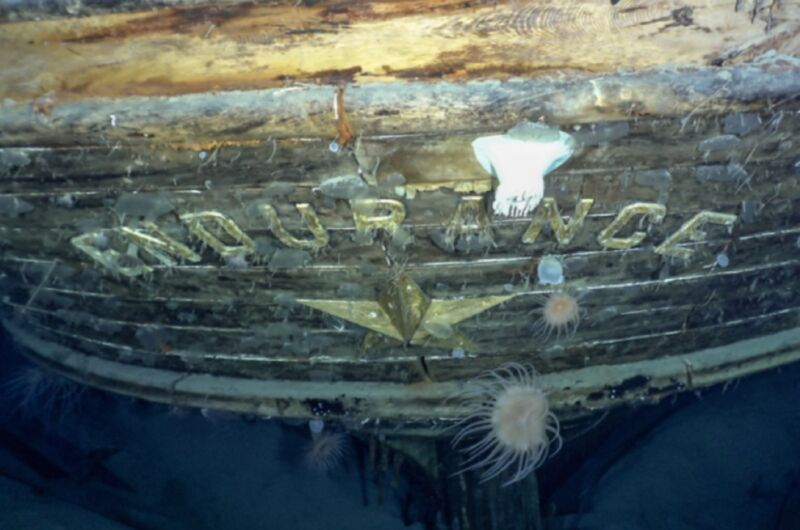Endurance shipwreck has finally been found in pristine condition

Enlarge / This is the stern of the good ship Endurance, which sank off the coast of Antarctica in 1915 after being crushed by pack ice. The Endurance22 expedition has located the shipwreck in pristine condition after nearly 107 years. (credit: Falklands Maritime Heritage Trust/NatGeo)
In 1915, intrepid British explorer Sir Ernest Shackleton and his crew were stranded for months on the Antarctic ice after their ship, Endurance, was crushed by pack ice and sank into the freezing depths of the Weddell Sea. Today, the Falklands Maritime Heritage Trust and National Geographic announced the discovery of this famous shipwreck, nearly 107 years later, 3,008 meters down, roughly four miles (6.4 km) south of the ship's last recorded position.
The shipwreck is in pristine condition partly because of the lack of wood-eating microbes in those waters. In fact, the Endurance22 expedition's exploration director, Mensun Bound, told The New York Times that the shipwreck is the finest example he's ever seen; Endurance is "in a brilliant state of preservation." The expedition has released the first images of the wreck-the first time anyone has laid eyes on Endurance since its sinking a century ago. Bound et al. included shots of the stern (with "ENDURANCE" clearly visible), the rear deck and ship's wheel, and parts of the deck and hull.
A survival storyEndurance set sail from Plymouth on August 6, 1914, with Shackleton joining his crew in Buenos Aires. By the time they reached the Weddell Sea in January 1915, accumulating pack ice and strong gales slowed progress to a crawl. Endurance became completely icebound on January 24, and by mid-February, Shackleton ordered the boilers to be shut off so that the ship would drift with the ice until the weather warmed sufficiently for the pack to break up. It would be a long wait. For 10 months, the crew endured the freezing conditions. In August, ice floes pressed into the ship with such force that the ship's decks buckled.
Read 10 remaining paragraphs | Comments